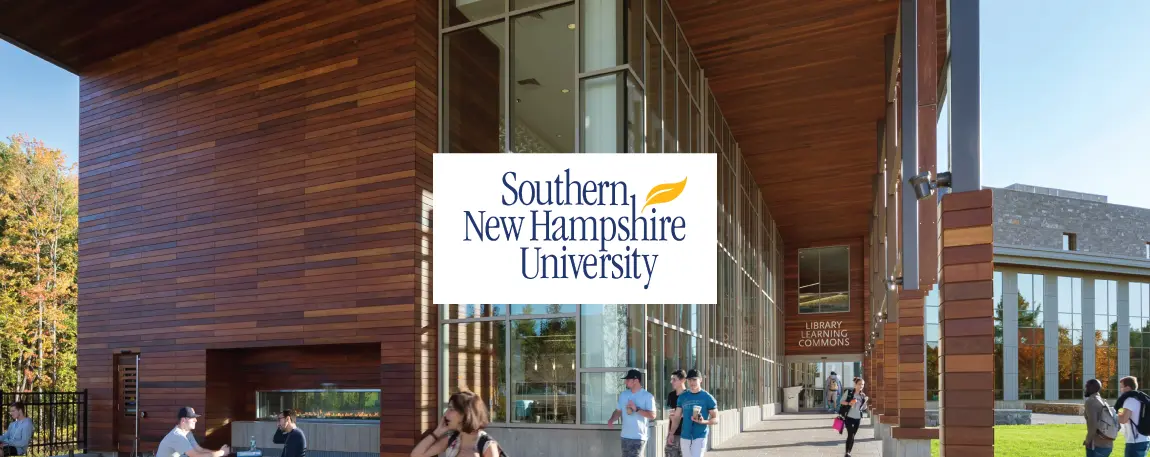The Details
DigitalEd Helps Southern New Hampshire University (SNHU) Math Instructors Engage Students in Interactive Online Courses That Foster a Deeper Conceptual Understanding
Meeting Non-Traditional Students Where They Are – Online
The majority of SNHU students are non-traditional students who complete their coursework online, often in the evening, outside of traditional school hours. Many SNHU students balance life’s responsibilities like jobs, military service and caring for families with their classes. These students’ schedules often do not allow for synchronous learning. This presents challenges for faculty who may not always know where students are in course material or if students are behind on reading or assignments in online environments.
When the COVID-19 pandemic hit, SNHU was more prepared than other schools, as it was already a leader in online education, with many online offerings already in place. But the pandemic was still an adjustment for faculty and students who had additional outside stressors. It was important for faculty to know where students were in course readings and assignments and be able to help students who needed support.
The Mathematics Department at SNHU wanted to apply the best teaching and learning practices, from synchronous learning to asynchronous courses. They felt it was vital to help students gain stronger math reasoning and fluency that they will retain as they move into higher-level courses and, ultimately, their careers. Faculty also wanted a way to better engage with students asynchronously to determine where they may be struggling and assess where they are in their learning at any given time.
“Sometimes the students mistake familiarity with material for understanding it, but fluency does not equal understanding; fluency equals familiarity.”
Technology Tools Paired with Cognitive Strategies Build Deeper Understanding
SNHU Associate Dean of STEM, Mark Gruen, and a team of SNHU faculty used the Möbius platform to teach College Algebra, Algebra and Calculus asynchronously online.
In classes with an average of 25 students, faculty used Möbius to encourage students to work in groups online to solve problems and fostered rich conversations about math. Faculty were able to build and incorporate interactive audio and visual elements into courses to help increase math fluency. Instructors focused on using cognitive strategies and getting students to pause, self-assess, consider the next step and the reasoning, and ask for help if necessary.
“We are pairing thinking, meta-cognitive awareness, text and video-style narration,” said Gruen.
“Möbius allows us to understand specifically where a student needs help – because the platform requires students to show their work and process.”
The platform offers instructors more insight into students’ thinking. Student participation activities allow students to read, view examples and solve problems throughout an assessment. Students also get a chance to explore concepts through adapting graphs and visuals by moving things around and changing values in interactive lessons.
Möbius allows faculty to know where a student is in the text and which students may be struggling or falling behind.
Shifting to a Positive Mindset Around Math for Students
Möbius allows for richer conversations and opportunities for dialogue about the thinking and reasoning behind math. The platform shows when a student gets the right answer but has the wrong process for getting to the answer, or vice versa. It can also show instructors when a student omits an important step so they can step in and talk about it directly with students.
“Our courses are designed for deeper conceptual understanding,” said Gruen.
Faculty continuously collaborate and improve content and now have an easy way to share and replicate best practices for teaching and learning while customizing the online learning experience for their students.
“We want students to be able to apply what they learn to higher-level courses and know why certain procedures work, not just how to do them,” said Gruen.
Sharing and Replicating Best Practices Based on Continuous Feedback
“It’s always an adjustment to move everything online, but our faculty have been wonderful,” said Gruen. “Our teachers have been willing to work together to make changes to questions and assessments to make things clearer for students.”
Each instructor can personalize their course content based on discussions and make global changes if needed. All improvements are faculty-driven based on collaborative discussions.
An additional helpful aspect of the Möbius platform for SNHU is that the course content can be adjusted to meet the University’s standards for diversity, equity and inclusion. For example, math problems can be adjusted to talk about gender identity more inclusively by changing the wording of questions. This flexibility is not possible with a standard static textbook and has been helpful for SNHU.
SNHU faculty have found that the Möbius platform has been the exact type of tool they needed for helping students develop a deeper understanding of math in asynchronous courses. The flexibility to adjust content, the ability to see where students are in the material, and the opportunity to provide targeted support have helped SNHU faculty teach online math courses that lead to a long-term, deep understanding of course content.

